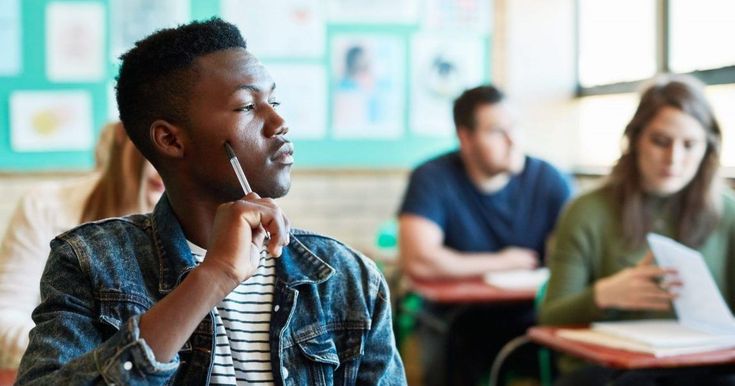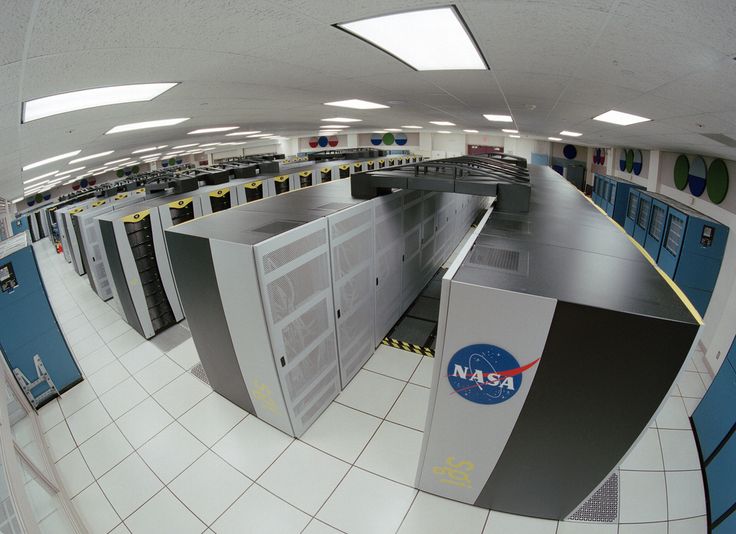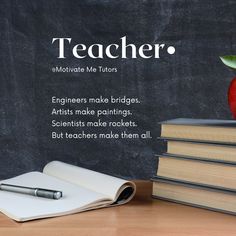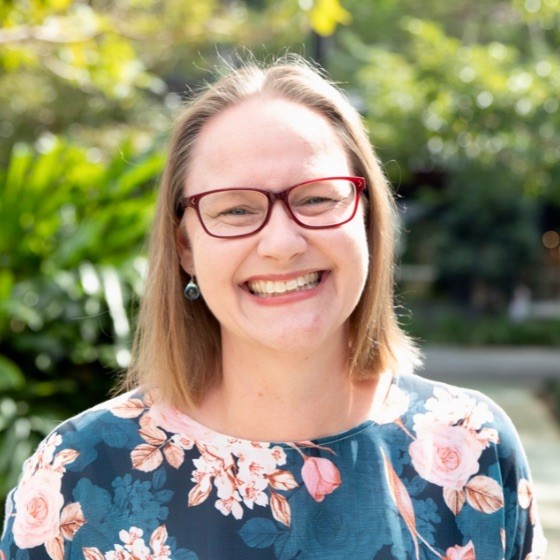In an era where education faces unprecedented challenges and opportunities, teachers play a crucial role in shaping the future. This article highlights 100 exceptional educators who are revolutionizing teaching methods, inspiring students, and making a lasting impact on society. From innovative classroom techniques to global education initiatives, these teachers are changing the world one student at a time.
Elementary Education
1. Kayla Delzer – Mapleton, North Dakota
Subject: Elementary Education
Kayla Delzer has revolutionized the traditional classroom setup with her “flexible seating” approach, allowing students to choose where and how they learn best.
Key Contributions:
- Pioneered the flexible seating classroom model
- Author of “FlexEd: Flexible Seating for Flexible Learners”
- Named to the “Global Top 100 EdTech Influencers” list
2. Joe Dombrowski – Royal Oak, Michigan
Subject: 4th Grade
Known for his viral spelling test prank, Joe Dombrowski brings humor and creativity to his teaching, making learning fun and memorable for his students.
Key Contributions:
- Uses social media to share innovative teaching ideas
- Advocates for incorporating humor in education
- Featured on The Ellen DeGeneres Show for his creative teaching methods
3. Akbar Cook – Newark, New Jersey
Subject: Elementary and High School Principal
Akbar Cook transformed his school by installing washing machines to combat bullying of students who couldn’t afford clean clothes, significantly improving attendance rates.
Key Contributions:
- Installed laundry facilities in school to support underprivileged students
- Increased school attendance rates by addressing basic needs
- Featured on Ellen DeGeneres Show for his impactful initiatives
4. Melissa Salguero – New York City, New York
Subject: Music Education
Melissa Salguero has brought music education to underprivileged communities, transforming students’ lives through the power of music.
Key Contributions:
- 2018 GRAMMY Music Educator of the Year
- Raised funds to rebuild school’s music program after a break-in
- Featured in the documentary “Don’t Stop the Music”
5. Dyane Smokorowski – Andover, Kansas
Subject: Technology Integration
Dyane Smokorowski, known as “Mrs. Smoke,” pioneers global collaboration projects, connecting her students with peers and experts worldwide.
Key Contributions:
- 2019 National Teacher Hall of Fame Inductee
- Develops innovative global education projects
- Advocates for technology integration in classrooms
Secondary Education
6. Mandy Manning – Spokane, Washington
Subject: English and Math for Immigrant and Refugee Students
Mandy Manning, the 2018 National Teacher of the Year, dedicates her career to teaching immigrant and refugee students, helping them integrate into American society.
Key Contributions:
- Develops culturally responsive teaching methods
- Advocates for immigrant and refugee student rights
- Promotes global education and cultural exchange
7. Rodney Robinson – Richmond, Virginia
Subject: Social Studies in Juvenile Detention
Rodney Robinson, the 2019 National Teacher of the Year, teaches social studies to incarcerated youth, focusing on creating second chances through education.
Key Contributions:
- Advocates for equitable education in the juvenile justice system
- Develops trauma-informed teaching practices
- Promotes restorative justice in education
8. Sydney Chaffee – Dorchester, Massachusetts
Subject: Humanities
Sydney Chaffee, the 2017 National Teacher of the Year, focuses on social justice education and project-based learning.
Key Contributions:
- Integrates arts and social justice into humanities curriculum
- Promotes project-based learning and student-led initiatives
- Advocates for teacher leadership and collaboration
9. Jahana Hayes – Waterbury, Connecticut
Subject: History and Social Studies
Jahana Hayes, the 2016 National Teacher of the Year, transitioned from teaching to becoming the first African American woman to represent Connecticut in Congress.
Key Contributions:
- Emphasizes community service in education
- Advocates for increased teacher diversity
- Promotes educational equity and access
10. Shanna Peeples – Amarillo, Texas
Subject: English Language Arts
Shanna Peeples, the 2015 National Teacher of the Year, specializes in teaching English language learners and students in poverty.
Key Contributions:
- Develops innovative strategies for teaching English language learners
- Advocates for trauma-informed teaching practices
- Author of “Think Like Socrates: Using Questions to Invite Wonder & Empathy Into the Classroom”
Special Education
11. Chris Ulmer – Jacksonville, Florida
Subject: Special Education
Chris Ulmer, founder of Special Books by Special Kids, travels the world interviewing individuals with disabilities to promote acceptance and understanding.
Key Contributions:
- Created a global platform for individuals with disabilities to share their stories
- Promotes neurodiversity and inclusion
- Reaches millions through social media to change perceptions of disabilities
12. Kimberly Eckert – Baton Rouge, Louisiana
Subject: Special Education and English
Kimberly Eckert, the 2018 Louisiana Teacher of the Year, focuses on inclusive education and empowering students with disabilities.
Key Contributions:
- Develops innovative co-teaching models for inclusive classrooms
- Advocates for students with disabilities in mainstream education
- Promotes student-led IEP (Individualized Education Program) meetings
13. Daniel Jude Brown – Irvine, California
Subject: Special Education Technology
Daniel Jude Brown specializes in using technology to support students with special needs, particularly those with autism spectrum disorders.
Key Contributions:
- Develops assistive technology solutions for special education
- Trains teachers in using technology for differentiated instruction
- Advocates for universal design for learning principles
14. Karen Vogelsang – Memphis, Tennessee
Subject: Special Education and Elementary Education
Karen Vogelsang, a former Tennessee Teacher of the Year, focuses on early intervention and inclusive practices in elementary education.
Key Contributions:
- Implements innovative early intervention strategies
- Promotes inclusive education models in elementary schools
- Develops parent-teacher collaboration programs for special education
15. Alexis Breyer – Phoenix, Arizona
Subject: Special Education and Art Therapy
Alexis Breyer combines special education with art therapy to help students with emotional and behavioral disorders express themselves and develop coping skills.
Key Contributions:
- Integrates art therapy techniques into special education curriculum
- Develops emotional regulation programs for students with behavioral challenges
- Advocates for arts integration in special education
STEM Education
16. Amir Abo-Shaeer – Goleta, California
Subject: Physics and Engineering
Amir Abo-Shaeer, the first public school teacher to receive a MacArthur “Genius” Grant, founded an academy of engineering within his high school.
Key Contributions:
- Created the Dos Pueblos Engineering Academy
- Promotes project-based learning in STEM education
- Advocates for increased diversity in engineering fields
17. Anne Makepeace – Norwalk, Connecticut
Subject: Computer Science
Anne Makepeace is a pioneer in K-12 computer science education, focusing on making coding accessible to all students.
Key Contributions:
- Develops innovative computer science curriculum for K-12
- Promotes girls’ participation in coding and technology
- Organizes community coding events and hackathons
18. Fredi Lajvardi – Phoenix, Arizona
Subject: Robotics
Fredi Lajvardi led a team of underprivileged high school students to victory in a national underwater robotics competition, beating out top universities.
Key Contributions:
- Inspired the book and film “Spare Parts”
- Promotes STEM education in underserved communities
- Develops hands-on, project-based robotics programs
19. Nancie Lindblom – Chandler, Arizona
Subject: Advanced Placement Calculus
Nancie Lindblom, a Milken Educator Award winner, is known for her innovative approaches to teaching calculus and making advanced math accessible to all students.
Key Contributions:
- Develops engaging methods for teaching complex mathematical concepts
- Promotes growth mindset in mathematics education
- Mentors new teachers in STEM fields
20. Michael Soskil – Newfoundland, Pennsylvania
Subject: Elementary Science
Michael Soskil, a Top 10 Finalist for the Global Teacher Prize, focuses on project-based learning and global collaboration in science education.
Key Contributions:
- Develops global science education projects
- Promotes environmental education and sustainability
- Advocates for inquiry-based science instruction
Arts and Humanities
21. Andria Zafirakou – London, United Kingdom
Subject: Arts and Textiles
Andria Zafirakou, winner of the 2018 Global Teacher Prize, uses art to bridge cultural and language barriers in one of London’s most ethnically diverse and disadvantaged areas.
Key Contributions:
- Develops culturally responsive arts education programs
- Promotes arts integration across the curriculum
- Advocates for the importance of arts education in schools
22. Wemerson da Silva Nogueira – São Paulo, Brazil
Subject: Music Education
Wemerson da Silva Nogueira transforms the lives of students in São Paulo’s favelas through music education, using recycled materials to create instruments.
Key Contributions:
- Creates musical instruments from recycled materials
- Develops music education programs for underprivileged communities
- Promotes environmental awareness through music
23. Melissa Salguero – Bronx, New York
Subject: Music Education
Melissa Salguero, a GRAMMY Music Educator Award winner, rebuilt her school’s music program from scratch, bringing music education to an underserved community.
Key Contributions:
- Raised funds to rebuild school’s music program
- Develops innovative music education curriculum
- Promotes the importance of music in holistic education
24. Jinkins Ajay Giles – New Orleans, Louisiana
Subject: Theater Arts
Jinkins Ajay Giles uses theater to help students process trauma and build confidence in post-Katrina New Orleans.
Key Contributions:
- Develops trauma-informed theater education programs
- Uses theater to promote social-emotional learning
- Advocates for arts education in urban schools
25. Miao Fang – Taipei, Taiwan
Subject: Chinese Literature and Culture
Miao Fang innovates in teaching traditional Chinese literature and culture, making ancient texts relevant to modern students.
Key Contributions:
- Develops interactive methods for teaching classical literature
- Promotes cultural heritage education
- Integrates technology in humanities education
Language Education
26. Stephen Ritz – Bronx, New York
Subject: English as a Second Language and Urban Farming
Stephen Ritz combines ESL education with urban farming, creating the Green Bronx Machine to improve student engagement and community health.
Key Contributions:
- Founder of the Green Bronx Machine
- Integrates hands-on learning and nutrition education
- Promotes sustainable urban agriculture in schools
27. Naomi Volain – Springfield, Massachusetts
Subject: English Language Learners and Science
Naomi Volain, a Presidential Award for Excellence in Mathematics and Science Teaching recipient, specializes in teaching science to English language learners.
Key Contributions:
- Develops strategies for teaching complex scientific concepts to ELL students
- Promotes environmental education and citizen science projects
- Advocates for increased support for ELL students in STEM fields
28. Keishia Thorpe – Bladensburg, Maryland
Subject: English and College Preparation
Keishia Thorpe, winner of the 2021 Global Teacher Prize, focuses on helping immigrant and refugee students access higher education opportunities.
Key Contributions:
- Helps students secure over $6.7 million in scholarships
- Develops college preparation programs for first-generation students
- Advocates for increased access to higher education for immigrant students
29. Luis Soriano – La Gloria, Colombia
Subject: Literacy Education
Luis Soriano, known as the “Biblioburro,” travels on donkeys to bring books and literacy education to remote areas of Colombia.
Key Contributions:
- Created a mobile library serving remote communities
- Promotes literacy in rural and conflict-affected areas
- Inspires global initiatives for mobile education
30. Hanan Al Hroub – Palestine
Subject: Early Childhood Education
Hanan Al Hroub, winner of the 2016 Global Teacher Prize, specializes in supporting children traumatized by violence through play-based learning.
Key Contributions:
- Develops trauma-informed teaching methods
- Promotes non-violence through education
- Author of “We Play and Learn”
Technology Integration
31. Richard Culatta – Washington D.C., USA
Subject: Educational Technology
Richard Culatta, CEO of the International Society for Technology in Education (ISTE), is a leader in integrating technology into education.
Key Contributions:
- Develops standards for effective use of technology in education
- Promotes digital citizenship and online safety
- Advocates for equitable access to educational technology
32. Koen Timmers – Hasselt, Belgium
Subject: Computer Science and Global Education
Koen Timmers, a Top 10 finalist for the Global Teacher Prize, focuses on global collaborative projects using technology.
Key Contributions:
- Founder of the Climate Action Project, involving over 2.8 million students
- Develops innovative online learning platforms
- Promotes global citizenship through technology
33. Jennifer Leban – Elmhurst, Illinois
Subject: Creative Technology
Jennifer Leban, an Apple Distinguished Educator, specializes in integrating creative technology across the curriculum.
Key Contributions:
- Develops innovative ways to use technology in arts education
- Promotes digital storytelling and multimedia production
- Advocates for creativity in technology education
34. Jake Miller – Massillon, Ohio
Subject: Educational Technology Integration
Jake Miller, known for his “Jake’s Ed Tech Tips” YouTube channel, helps teachers integrate technology effectively into their classrooms.
Key Contributions:
- Creates accessible tutorials for educational technology tools
- Promotes effective use of technology in all subject areas
- Develops strategies for remote and hybrid learning
35. Leslie Fisher – Orange County, California
Subject: Technology Training
Leslie Fisher, a former K-12 teacher turned technology trainer, helps educators worldwide integrate technology into their teaching.
Key Contributions:
- Conducts technology training sessions for educators globally
- Develops strategies for effective technology integration
- Promotes accessibility and inclusivity in educational technology
Global Education
36. Maggie MacDonnell – Salluit, Quebec, Canada
Subject: Life Skills and Physical Education
Maggie MacDonnell, winner of the 2017 Global Teacher Prize, works in a remote Arctic village, focusing on life skills and reducing teenage pregnancy rates.
Key Contributions:
- Develops culturally relevant education programs for Inuit youth
- Promotes physical activity and healthy lifestyles
- Advocates for increased support for remote and indigenous communities
37. Peter Tabichi – Nakuru County, Kenya
Subject: Science
Peter Tabichi, winner of the 2019 Global Teacher Prize, teaches in a remote Kenyan village, focusing on peace-building and sustainable agriculture.
Key Contributions:
- Promotes science education in resource-poor environments
- Develops sustainable agriculture projects with students
- Advocates for peace education in conflict-affected regions
38. Sakhawat Ali – Gilgit-Baltistan, Pakistan
Subject: STEM Education
Sakhawat Ali brings STEM education to remote areas of Pakistan, focusing on girls’ education and community development.
Key Contributions:
- Establishes STEM labs in remote schools
- Promotes girls’ participation in STEM fields
- Develops community-based education initiatives
39. Aqeela Asifi – Kot Chandana, Pakistan
Subject: Girls’ Education in Refugee Communities
Aqeela Asifi, winner of the UNHCR Nansen Refugee Award, has dedicated her life to providing education for Afghan refugee girls in Pakistan.
Key Contributions:
- Established schools for Afghan refugee girls
- Promotes girls’ education in conservative communities
- Develops culturally sensitive curriculum for refugee education
40. David Calle – Madrid, Spain
Subject: Online Mathematics Education
David Calle, founder of Unicoos, provides free online math and science education to millions of Spanish-speaking students worldwide.
Key Contributions:
- Created one of the largest educational YouTube channels in Spanish
- Develops accessible online resources for STEM education
- Promotes equal access to quality education through technology
Environmental Education
41. Cesar Harada – Hong Kong
Subject: Environmental Science and Technology
Cesar Harada, founder of MakerBay, teaches students to develop technological solutions for environmental challenges.
Key Contributions:
- Develops hands-on environmental technology projects
- Promotes ocean conservation through education
- Advocates for maker education and environmental stewardship
42. Jane Goodall – Global
Subject: Environmental Conservation
While primarily known as a primatologist, Jane Goodall has become a global teacher through her Roots & Shoots program, educating youth about conservation.
Key Contributions:
- Founder of the Roots & Shoots youth program
- Promotes environmental education and conservation
- Inspires global youth activism for the environment
43. Oladimeji Togunde – Abeokuta, Nigeria
Subject: Environmental Education
Oladimeji Togunde focuses on teaching sustainable agriculture and environmental conservation in rural Nigeria.
Key Contributions:
- Develops school garden programs
- Promotes sustainable farming practices
- Advocates for environmental education in rural areas
44. Thimmakka Saalumarada – Karnataka, India
Subject: Environmental Conservation
Though not a formal teacher, Thimmakka Saalumarada has become an environmental educator, teaching the importance of tree planting and conservation.
Key Contributions:
- Planted and nurtured over 8,000 trees
- Inspires environmental education programs
- Promotes indigenous knowledge in conservation
45. Charles Orgbon III – Atlanta, Georgia, USA
Subject: Youth Environmental Leadership
Charles Orgbon III, founder of Greening Forward, educates and empowers youth to become environmental leaders.
Key Contributions:
- Develops youth environmental leadership programs
- Promotes student-led environmental initiatives
- Advocates for youth voices in environmental policy
Inclusive Education
46. Pranjal Patil – Thiruvananthapuram, India
Subject: Administrative Services
As India’s first visually impaired woman IAS officer, Pranjal Patil has become a teacher and role model for inclusive education and employment.
Key Contributions:
- Advocates for inclusive education policies
- Promotes accessibility in public services
- Inspires students with disabilities to pursue their dreams
47. Haben Girma – USA
Subject: Disability Rights and Inclusion
Haben Girma, the first deafblind person to graduate from Harvard Law School, educates about disability rights and inclusive design.
Key Contributions:
- Advocates for accessible technology in education
- Promotes inclusive education policies
- Teaches about the importance of disability rights
48. Ann Voskamp – Ontario, Canada
Subject: Homeschooling and Inclusive Education
Ann Voskamp, a bestselling author and homeschooling mother, advocates for inclusive education and adopting children with special needs.
Key Contributions:
- Promotes inclusive homeschooling practices
- Advocates for adopting children with special needs
- Inspires families to embrace inclusive education
49. Temple Grandin – Fort Collins, Colorado, USA
Subject: Animal Science and Autism Education
Dr. Temple Grandin, a professor of animal science and autism spokesperson, educates about neurodiversity and inclusive practices in education and industry.
Key Contributions:
- Develops livestock handling systems based on animal behavior
- Advocates for different types of thinking in education and industry
- Promotes understanding of autism and neurodiversity
50. Brina Maxino – Philippines
Subject: Special Education Advocacy
Brina Maxino, a young woman with Down syndrome, has become a teacher and advocate for inclusive education and employment for people with disabilities.
Key Contributions:
- Promotes inclusive education policies
- Advocates for employment opportunities for people with disabilities
- Inspires students with Down syndrome to pursue their goals
Early Childhood Education
51. Deborah Stipek – Stanford, California, USA
Subject: Early Childhood Education
Dr. Deborah Stipek, professor at Stanford Graduate School of Education, is a leading researcher and advocate for high-quality early childhood education.
Key Contributions:
- Researches effective early childhood education practices
- Advocates for policies supporting early education
- Develops strategies for promoting motivation in young learners
52. Sugata Mitra – Newcastle, UK and India
Subject: Self-Organized Learning Environments
Sugata Mitra, known for his “Hole in the Wall” experiments, promotes self-organized learning environments for young children.
Key Contributions:
- Developed the concept of Self-Organized Learning Environments (SOLE)
- Promotes child-driven education
- Advocates for technology integration in early learning
53. Loris Malaguzzi – Reggio Emilia, Italy
Subject: Reggio Emilia Approach
Although no longer alive, Loris Malaguzzi’s influence as the founder of the Reggio Emilia approach continues to shape early childhood education worldwide.
Key Contributions:
- Developed the Reggio Emilia approach to early childhood education
- Promoted the image of the child as capable and resourceful
- Influenced early childhood education practices globally
54. Iram Siraj – Oxford, UK
Subject: Early Childhood Education and Care
Professor Iram Siraj is a leading researcher in early childhood education, focusing on quality early years provision and professional development.
Key Contributions:
- Researches effective early years education practices
- Develops professional development programs for early childhood educators
- Advises on national early years policies
55. Yoshie Kaga – Paris, France
Subject: Early Childhood Care and Education
Dr. Yoshie Kaga, working with UNESCO, is a global advocate for early childhood care and education, particularly in developing countries.
Key Contributions:
- Promotes holistic early childhood development
- Advocates for increased investment in early years education
- Develops global policies for early childhood care and education
Adult Education and Lifelong Learning
56. Salman Khan – Mountain View, California, USA
Subject: Online Education
Salman Khan, founder of Khan Academy, has revolutionized online education, providing free learning resources for students of all ages worldwide.
Key Contributions:
- Created Khan Academy, a free online learning platform
- Promotes personalized learning through technology
- Advocates for accessible education for all
57. Barbara Oakley – Oakland, Michigan, USA
Subject: Learning How to Learn
Dr. Barbara Oakley, creator of the world’s most popular MOOC “Learning How to Learn,” teaches students and adults how to learn effectively.
Key Contributions:
- Developed strategies for effective learning
- Promotes understanding of the science of learning
- Advocates for lifelong learning and skill development
58. Vicki Davis – Camilla, Georgia, USA
Subject: Educational Technology and Teacher Professional Development
Vicki Davis, known as “Cool Cat Teacher,” educates teachers about effective technology integration and 21st-century learning skills.
Key Contributions:
- Hosts the “10-Minute Teacher Podcast”
- Develops resources for teacher professional development
- Promotes global collaboration among educators
59. Sugata Mitra – Newcastle, UK and India
Subject: Self-Organized Learning Environments
Sugata Mitra’s work extends beyond early childhood, promoting self-organized learning for adults and communities.
Key Contributions:
- Developed the “School in the Cloud” concept
- Promotes lifelong learning through technology
- Advocates for community-based education initiatives
60. Jimmy Wales – USA and UK
Subject: Open-Source Knowledge
Jimmy Wales, co-founder of Wikipedia, has become a global teacher by promoting free access to knowledge for people of all ages.
Key Contributions:
- Co-founded Wikipedia, the world’s largest open-source knowledge platform
- Promotes digital literacy and critical thinking
- Advocates for free access to information worldwide
Special Needs Education
61. Temple Grandin – Fort Collins, Colorado, USA
Subject: Autism Education and Animal Science
Dr. Temple Grandin, a professor with autism, educates about neurodiversity and advocates for individuals on the autism spectrum.
Key Contributions:
- Develops strategies for teaching students with autism
- Promotes understanding of different thinking styles
- Advocates for employment opportunities for individuals with autism
62. Soma Mukhopadhyay – Austin, Texas, USA
Subject: Rapid Prompting Method for Autism
Soma Mukhopadhyay developed the Rapid Prompting Method to teach individuals with severe autism.
Key Contributions:
- Created the Rapid Prompting Method for communication
- Advocates for presuming competence in non-verbal individuals
- Trains educators and parents in alternative communication methods
63. Sue Larkey – Australia
Subject: Autism Education
Sue Larkey is an international autism education specialist, providing practical strategies for teaching students with autism.
Key Contributions:
- Develops resources for teaching students with autism
- Conducts teacher training workshops worldwide
- Advocates for inclusive education practices
64. Carol Gray – Michigan, USA
Subject: Social Stories for Autism
Carol Gray developed Social Stories™, a tool used worldwide to teach social understanding to individuals with autism.
Key Contributions:
- Created the Social Stories™ methodology
- Trains educators and parents in using Social Stories™
- Promotes social understanding and inclusion
65. Barry Prizant – Cranston, Rhode Island, USA
Subject: Communication in Autism
Dr. Barry Prizant, author of “Uniquely Human,” focuses on developing communication skills in individuals with autism.
Key Contributions:
- Developed the SCERTS Model for autism intervention
- Promotes a strengths-based approach to autism
- Advocates for family-centered intervention practices
Educational Leadership
66. Ken Robinson – UK (posthumous)
Subject: Creativity in Education
Sir Ken Robinson, while no longer with us, continues to influence education through his advocacy for creativity and personalized learning.
Key Contributions:
- Promoted creativity as essential in education
- Advocated for reforming education systems
- Influenced global discussions on the purpose of education
67. Linda Darling-Hammond – Stanford, California, USA
Subject: Education Policy and Teacher Education
Dr. Linda Darling-Hammond is a leading voice in education policy and teacher preparation.
Key Contributions:
- Researches effective teaching practices and teacher education
- Advises on education policy at state and national levels
- Advocates for equity in education
68. Andreas Schleicher – Paris, France
Subject: International Education Comparisons
Andreas Schleicher, Director for Education and Skills at the OECD, leads the Programme for International Student Assessment (PISA).
Key Contributions:
- Directs international comparisons of education systems
- Influences global education policy
- Promotes evidence-based education practices
69. Wendy Kopp – New York, USA
Subject: Educational Equity
Wendy Kopp, founder of Teach For America and co-founder of Teach For All, works to expand educational opportunity globally.
Key Contributions:
- Founded Teach For America to address educational inequity
- Co-founded Teach For All to expand the model globally
- Advocates for systemic change in education
70. Geoffrey Canada – New York, USA
Subject: Community-Based Education
Geoffrey Canada, founder of the Harlem Children’s Zone, pioneered a comprehensive approach to education and community development.
Key Contributions:
- Developed the “cradle-to-career” pipeline for education
- Promotes holistic community development
- Advocates for comprehensive support for children in poverty
Vocational Education
71. Mike Rowe – USA
Subject: Skilled Trades Advocacy
Mike Rowe, through his mikeroweWORKS Foundation, promotes vocational education and the value of skilled trades.
Key Contributions:
- Advocates for skilled trades education
- Provides scholarships for trade school students
- Challenges perceptions about blue-collar work
72. Simon Bartley – UK
Subject: Global Skills Development
Simon Bartley, former President of WorldSkills International, promotes vocational education and skills competitions globally.
Key Contributions:
- Organizes international skills competitions
- Advocates for the importance of vocational skills
- Promotes global standards in vocational education
73. Nancy Hoffman – USA
Subject: Vocational Education Policy
Dr. Nancy Hoffman, a senior advisor at Jobs for the Future, focuses on integrating work and learning in vocational education.
Key Contributions:
- Researches effective vocational education models
- Advocates for apprenticeship programs
- Promotes integration of academic and vocational education
74. Lidya Sunaryo – Indonesia
Subject: Vocational Education for Women
Lidya Sunaryo focuses on providing vocational education and entrepreneurship training for women in rural Indonesia.
Key Contributions:
- Develops vocational programs for rural women
- Promotes entrepreneurship in developing communities
- Advocates for gender equality in vocational education
75. Martin Kenyon – Switzerland
Subject: Dual Vocational Education Systems
Martin Kenyon, with the Swiss Federal Institute for Vocational Education and Training, promotes the Swiss model of dual vocational education.
Key Contributions:
- Develops dual education programs combining work and study
- Promotes international cooperation in vocational education
- Advocates for industry involvement in vocational training
Educational Technology
76. Sal Khan – Mountain View, California, USA
Subject: Online Education
Sal Khan, founder of Khan Academy, has revolutionized online education with free, accessible learning resources.
Key Contributions:
- Created Khan Academy, a free online learning platform
- Promotes mastery-based learning
- Advocates for personalized education through technology
77. Sebastian Thrun – Stanford, California, USA
Subject: AI in Education
Sebastian Thrun, co-founder of Udacity, focuses on using AI to personalize education and teach cutting-edge technology skills.
Key Contributions:
- Pioneered Massive Open Online Courses (MOOCs)
- Develops AI-driven personalized learning systems
- Promotes education in emerging technologies
78. Reshma Saujani – New York, USA
Subject: Coding Education for Girls
Reshma Saujani, founder of Girls Who Code, works to close the gender gap in technology education.
Key Contributions:
- Created programs to teach girls coding skills
- Advocates for increased diversity in tech fields
- Promotes a culture of bravery and risk-taking for girls
79. Mitchel Resnick – Cambridge, Massachusetts, USA
Subject: Creative Learning with Technology
Mitchel Resnick, creator of Scratch programming language, focuses on using technology to promote creative learning.
Key Contributions:
- Developed Scratch, a visual programming language for children
- Promotes the “Four P’s” of creative learning: Projects, Peers, Passion, and Play
- Advocates for computational thinking in education
80. Daphne Koller – Stanford, California, USA
Subject: Online Learning Platforms
Daphne Koller, co-founder of Coursera, has been instrumental in developing and promoting online learning platforms.
Key Contributions:
- Co-founded Coursera, a leading online learning platform
- Researches machine learning applications in education
- Advocates for accessible, high-quality online education
Mindfulness and Social-Emotional Learning
81. Daniel Goleman – USA
Subject: Emotional Intelligence
Daniel Goleman, psychologist and author, has brought emotional intelligence to the forefront of education.
Key Contributions:
- Popularized the concept of emotional intelligence
- Advocates for social-emotional learning in schools
- Develops programs for cultivating emotional intelligence
82. Linda Lantieri – New York, USA
Subject: Social and Emotional Learning
Linda Lantieri, director of The Inner Resilience Program, focuses on integrating social and emotional learning into education.
Key Contributions:
- Develops programs for cultivating inner resilience in educators and students
- Promotes mindfulness practices in schools
- Advocates for holistic approaches to education
83. Patricia Jennings – Charlottesville, Virginia, USA
Subject: Mindfulness in Education
Patricia Jennings, professor at the University of Virginia, researches and promotes mindfulness-based approaches in education.
Key Contributions:
- Develops mindfulness programs for teachers and students
- Researches the effects of mindfulness on educational outcomes
- Advocates for teacher well-being and stress reduction
84. Richard Davidson – Madison, Wisconsin, USA
Subject: Contemplative Neuroscience
Dr. Richard Davidson, founder of the Center for Healthy Minds, researches the impact of contemplative practices on the brain and behavior.
Key Contributions:
- Researches the neurological effects of meditation
- Develops mindfulness programs for schools
- Promotes well-being as a skill that can be learned
85. Susan Kaiser Greenland – Los Angeles, California, USA
Subject: Mindfulness for Children
Susan Kaiser Greenland, author and mindfulness teacher, develops mindfulness programs specifically for children and families.
Key Contributions:
- Created the “Inner Kids” program
- Develops child-friendly mindfulness practices
- Promotes mindfulness as a tool for developing attention and emotional balance
86. Fernando Reimers – Cambridge, Massachusetts, USA
Subject: Global Citizenship Education
Fernando Reimers, professor at Harvard Graduate School of Education, focuses on innovative global citizenship education programs.
Key Contributions:
- Develops frameworks for global citizenship education
- Promotes education for sustainable development
- Advocates for preparing students for a globalized world
87. Homa Sabet Tavangar – Philadelphia, Pennsylvania, USA
Subject: Global Education and Intercultural Understanding
Homa Sabet Tavangar, author and advisor, specializes in helping educators and students develop global competence.
Key Contributions:
- Authored “Growing Up Global: Raising Children to Be At Home in the World”
- Develops global education curricula
- Promotes intercultural understanding in schools
88. Veronica Boix Mansilla – Cambridge, Massachusetts, USA
Subject: Global Competence
Veronica Boix Mansilla, principal investigator at Project Zero, Harvard Graduate School of Education, researches and develops frameworks for global competence.
Key Contributions:
- Develops tools for assessing global competence
- Researches interdisciplinary and global learning
- Promotes integration of global issues across the curriculum
89. Cleary Vaughan-Lee – San Francisco, California, USA
Subject: Global Oneness Project
Cleary Vaughan-Lee, executive director of the Global Oneness Project, provides free multicultural stories and lesson plans for global education.
Key Contributions:
- Curates and creates global education resources
- Promotes cultural diversity and environmental stewardship
- Develops film-based curriculum for global issues
90. Deirdre White – Washington D.C., USA
Subject: Global Pro Bono Education
Deirdre White, CEO of PYXERA Global, focuses on creating global engagement programs that blend corporate pro bono service and leadership development.
Key Contributions:
- Develops global pro bono programs for corporations
- Promotes experiential learning in global contexts
- Advocates for cross-sector partnerships in education
Innovative Teaching Methods
91. Sugata Mitra – Newcastle, UK
Subject: Self-Organized Learning Environments (SOLE)
Sugata Mitra, professor of educational technology, is known for his “Hole in the Wall” experiments and development of Self-Organized Learning Environments.
Key Contributions:
- Pioneered minimally invasive education
- Developed the concept of Self-Organized Learning Environments
- Promotes child-driven education using technology
92. Erin Gruwell – Long Beach, California, USA
Subject: Freedom Writers Method
Erin Gruwell, founder of the Freedom Writers Foundation, developed innovative methods to engage at-risk students through writing and literature.
Key Contributions:
- Created the Freedom Writers method
- Promotes tolerance and diversity through education
- Develops curriculum for engaging underserved students
93. Ron Clark – Atlanta, Georgia, USA
Subject: Engaging Teaching Techniques
Ron Clark, founder of the Ron Clark Academy, is known for his energetic and innovative teaching methods.
Key Contributions:
- Developed the “Essential 55” rules for students
- Promotes active and engaging classroom environments
- Trains teachers in dynamic instructional techniques
94. Stephen Ritz – Bronx, New York, USA
Subject: Green Education
Stephen Ritz, founder of the Green Bronx Machine, integrates urban farming with academic instruction.
Key Contributions:
- Developed school-based urban agriculture programs
- Promotes project-based learning through gardening
- Advocates for food justice and community development
95. Jaime Escalante – Los Angeles, California, USA (posthumous)
Subject: Advanced Mathematics Education
Jaime Escalante, whose story was told in the film “Stand and Deliver,” revolutionized the teaching of advanced mathematics to underprivileged students.
Key Contributions:
- Developed innovative methods for teaching calculus
- Proved that underprivileged students could excel in advanced math
- Inspired educators to have high expectations for all students
Education for Sustainable Development
96. Jane Goodall – Global
Subject: Environmental Education
Dr. Jane Goodall, primatologist and anthropologist, educates youth worldwide about environmental conservation through her Roots & Shoots program.
Key Contributions:
- Founded the Roots & Shoots youth program
- Promotes environmental education and conservation
- Inspires youth activism for sustainable development
97. Kartikeya Sarabhai – Ahmedabad, India
Subject: Environmental and Sustainability Education
Kartikeya Sarabhai, founder of the Centre for Environment Education in India, promotes environmental and sustainability education.
Key Contributions:
- Develops environmental education curricula
- Promotes Education for Sustainable Development (ESD)
- Advocates for integrating sustainability across educational programs
98. Lesley Byrne – Melbourne, Australia
Subject: Sustainability in Schools
Lesley Byrne, founder of Kids Teaching Kids, empowers students to tackle local and global environmental challenges.
Key Contributions:
- Developed the Kids Teaching Kids program
- Promotes peer-to-peer learning in environmental education
- Advocates for student-led environmental initiatives
99. Charles Hopkins – Toronto, Canada
Subject: UNESCO Chair in Reorienting Education towards Sustainability
Charles Hopkins works globally to reorient education systems to address sustainability.
Key Contributions:
- Develops frameworks for Education for Sustainable Development
- Advises governments on integrating sustainability into education
- Promotes teacher education for sustainable development
100. Thimmakka Saalumarada – Karnataka, India
Subject: Environmental Conservation
Though not a formal teacher, Thimmakka Saalumarada has become an environmental educator, teaching the importance of tree planting and conservation.
Key Contributions:
- Planted and nurtured over 8,000 trees
- Inspires environmental education programs
- Promotes indigenous knowledge in conservation
Conclusion
These 100 teachers represent a diverse array of educators who are changing the world through their innovative approaches, dedication to their students, and commitment to addressing global challenges through education. From classrooms in remote villages to online platforms reaching millions, these educators are shaping the future by inspiring, empowering, and equipping the next generation with the knowledge, skills, and values needed to create a more just, sustainable, and peaceful world.
Their work spans across various fields, including STEM education, arts and humanities, special needs education, environmental sustainability, global citizenship, and innovative teaching methods. Many of these educators are not just teaching within traditional classroom settings but are also developing new educational models, leveraging technology, and addressing systemic issues in education.
The impact of these teachers extends far beyond their immediate students. Through their writing, speaking, and advocacy work, they are influencing education policy, inspiring other educators, and changing public perceptions about the role and importance of education in society.
As we face unprecedented global challenges, from climate change to social inequality, the role of teachers in preparing future generations to address these issues becomes increasingly crucial. These 100 educators demonstrate the transformative power of teaching and the potential for education to be a catalyst for positive change in the world.
Their stories remind us of the profound impact that dedicated and innovative teachers can have, not just on individual students, but on entire communities and even global systems. They challenge us to rethink our approach to education, to be more inclusive, more creative, and more responsive to the needs of a rapidly changing world.
As we look to the future, it’s clear that the work of these educators and others like them will be essential in shaping a world that is more equitable, sustainable, and filled with opportunity for all. They inspire us to recognize the power of education and the crucial role that teachers play in building a better future for all of us.











